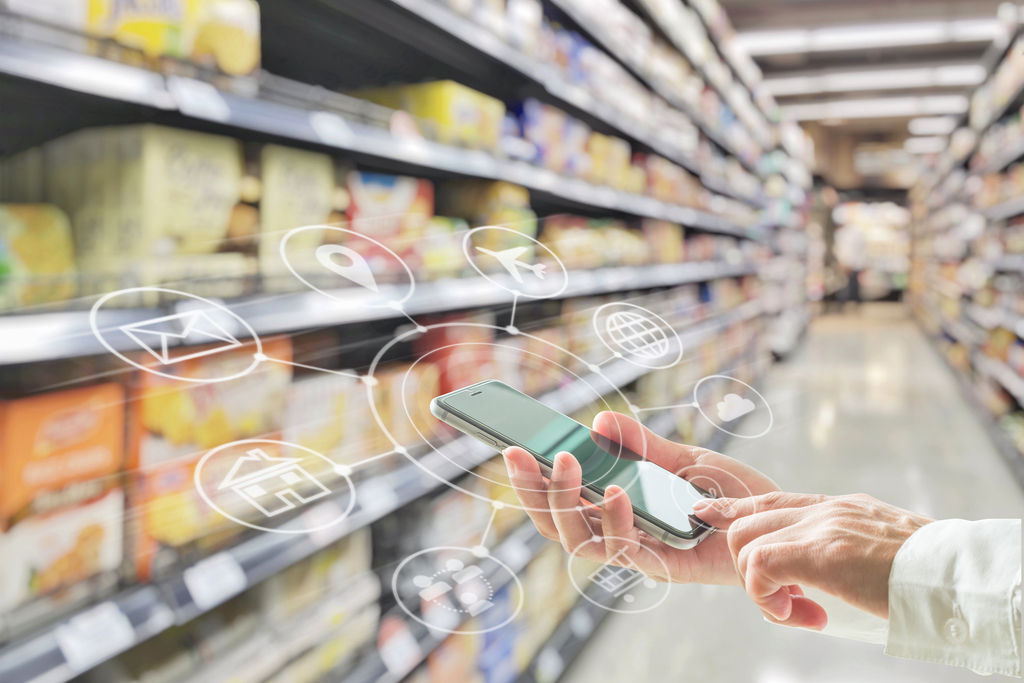The retail industry has gone through unprecedented changes—and they’re not over yet. From the meteoric rise of e-commerce years ago to emerging markets, complex supply chains, omnichannel shopping, and contactless/curbside transactions, digitization has become essential.
That’s why cloud-based retail apps have become a vital part of any retailer’s toolkit. However, with so many options to choose from, it can be challenging to know which to adopt. Why? Because many retail apps fall under the guise of a point of sale (POS) system. Consequently, this makes it difficult to differentiate critical features and benefits.
During Acceleration Economy’s Industry Cloud Battleground, a virtual event that is happening throughout this week, much of the focus has been on deep and wide domain capabilities for specific industries, including retail. In this article, we delve into a handful of apps that go beyond the POS moniker. We’ll show you how these retail apps can enable retailers to target specific areas of their businesses.
Square for Retail: Best for Payments
Square for Retail is a comprehensive POS system that covers many areas, including inventory, online sales, checkout tasks, reporting, and team management. However, for this article, we wanted to highlight the app’s payment features.
To access Square for Retail’s payment features, you need to purchase a Square Reader. Then, connect the device to an iPad for countertop payments. Alternatively, the reader can be used for remote payments too.
Square for Retail’s payment technology enables customers to pay in many ways. For instance, by credit or debit card, contactless, via chip and pin, Apple Pay, a gift card, or other options.
Funds are instantly accessible, for a 1.5% transfer fee, or on the same day for free. Furthermore, all the payments made through the app are compliant with PCI Security Council standards.
If you’re interested in utilizing some of the other app features, you’ll be pleased to find full integration. For example, you can access reports on the vendors supplying you with your best-selling products based on sales figures.
Sortly: Best for Inventory Management
Sortly is dedicated to inventory management. Using the app, users can track inventory across the breadth of their organization. Furthermore, Sortly enables grouping via location and other factors. Also, users can monitor specific items with custom barcodes, QR codes, and fields.
Additionally, the app makes it easy to regulate expenses by sending out alerts and reminders. That way, you can stay informed as to the number of products available and avoid over-ordering.
You can control all the processes through a suite of dashboards that enable you to generate reports to share across your company. In addition, the reports are shareable in multiple ways, including CSV, PDF, or Dropbox. Above all, Sortly simplifies and optimizes the inventory management process.
Kevy: Best for Retail Marketing
Kevy is a powerful marketing tool designed for e-commerce sites. Powered by AI, the app enables users to develop highly-targeted marketing campaigns for each of their customers. Furthermore, the Kevy rules engine also enables more focused list building and automated customer segmentation.
Kevy is process-driven. Stage one involves creating bespoke customer profiles based on personal buying data. In other words, the process enables you to target each customer based on their exact preferences and purchase history. Following this, the platform provides a drag and drop email builder so you can quickly create professional bespoke emails.
Interestingly, advanced analytics enable you to determine how much revenue each email gains. That way, you can repurpose successful subject lines and other elements.
And Kevy’s personalization features go further still with bespoke pop-ups and independent automated email triggers for every customer. Finally, the app’s clever integrated reporting features enable you to analyze how each of your marketing efforts are performing. Subsequently, you can see how each individual outreach has affected your profits, down to the cent.
Talon.One: Best for Promotions
Loyalty schemes, discounts, gift cards, and coupons are an integral part of the retail industry. And, today, digitization has made developing these promotions quick, easy, and highly malleable.
Talon.One is perhaps the most popular app in this field, and for good reason. Primarily, because the platform provides a wide range of features covering the promotions mentioned above and more. Certainly, Talon.One is a vast platform with many use cases, but for this article, we’ll summarize the most impressive.
There are separate software solutions for each promotional area, each with its own feature sets. For instance, the app’s coupon software enables users to create unique, personalized coupons by the millions and track them for security and compliance.
Individual customer data is used to determine accurate discounts. In addition, this enables referral rewards to be entirely bespoke. This means they can be set to increase as users become more integrated with your company. Furthermore, loyalty schemes are highly adaptable to your business model in terms of customer retention lengths, benefits, and more.
Hero: Best for Hybrid Interactions
The final app we’ve chosen to highlight in this article is a virtual shopping app called Hero. And it’s somewhat of a wild card. The app was brought about by the Covid-19 pandemic when most shoppers were confined in their homes.
A hybrid between an e-commerce and physical retail experience, Hero makes it possible for users to virtually visit a physical retail outlet. Meaning, with the app, customers can experience live shopping. In short, store assistants show products online and engage with customers in real-time. Above all, this experience blurs the lines between physical and online shopping, combining human interaction with the ease of e-commerce.
Furthermore, Hero enables retailers to communicate directly through email, SMS, and WhatsApp. After that, the aim is to continue to build a personal relationship not possible with AI chatbots. Although relatively new, this technology explicitly demonstrates how digital transformation will become more complexly entwined with physical retail processes.








